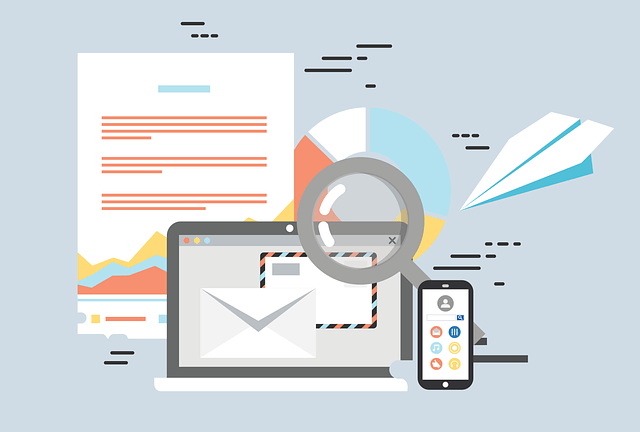
by Suellen | Email Marketing, Online Success
Once you have people signed up to your list, you want to treat them with great respect. Let them know how much you appreciate them.
One way to do this is through lead nurturing email campaigns. These are personalized and automated emails sent to subscribers throughout their journey with your business.
These emails provide value to your customers – and at the same time, maximize the potential of your list and ensure its sustainability.
It’s about not neglecting the leads you worked so hard to get in the first place. Statistics show that it costs a lot more time and money to find new leads than to nurture those you already have.
Here are a few tips for creating lead nurturing email campaigns:
Start With a Welcome Email Series
The moment someone opts in, you should thank them and introduce yourself. This should provide a basic overview of your values and your business goals. You don’t want to start with a long, drawn-out email. This would overwhelm them.
This is also a great moment to encourage your customers to reply by asking them a few questions about themselves and what kind of problems they are dealing with. Make the readers feel like they made the right decision to opt-in. Let them know that you are interested in them and their success.
Create Weekly and Monthly Newsletters or Updates
Keep your readers up-to-date on trending topics, news, and updates within your business and industry.
Please don’t use these messages to sell. Instead, use them to educate and get your readers more engaged in other communities such as your Facebook Group. Tell your audience about new products or services you are working on and any additional valuable information they can use.
When you continue to provide value to your customers, they will want to stay in touch.
Send Segmented Promotional and Educational Campaigns
Use birthdays, anniversaries, and other important dates and information to your advantage.
List segmentation allows you to send more personalized messages and education to those who care about your content. It also allows you to tailor and target your message better, as no two readers will be the same or on the same buyers’ journey.
This segmentation requires a little extra effort, but the time spent is worth it.
Always include a Follow-up and Way to Reply or Engage
Send emails that ask for some feedback and a way to engage further or reengage your subscribers.
Invite them to social media pages or tell them to reply to the email. The replies you get can ensure the content you create is valuable and solves their problem.
So there you have four tips for establishing your relationship with your list members.
One of the biggest mistakes marketers make is to have people sign up on their email list – and then either sell, sell, sell, or ignore them entirely.
Let’s make it our purpose to treat our list with respect. We want to give them something of value – on a continuing basis.
As we do that, these “names” become friends and many of them will become partners on our marketing journey.

by Suellen | Email Marketing, Online Success
Let’s look at three Keys to optimizing your email content.
We know that effectively communicating to your audience is required today to be successful in business. Most people agree on that.
But what are some keys to effective communication?
Good, quality content is essential. Without good content to engage with your audience, your emails will not be effective. So what makes for good content?
The following are the three key elements for optimizing your email marketing funnels.
Your content should be Value-Driven
Always be looking for ways to educate and add value to your subscribers’ life. Education is the best way to establish friends – and eventually persuade them to make a purchase.
It’s a big “no-no” to constantly be selling to them. In fact, if the title looks like an obvious sales pitch, they are unlikely to open. (Your emails might even go to their spam folder).
Only about one out of every four sales emails is opened.
However, if your readers know that they will gain value every single time they open your emails, they will want to open them more often. Your customers understand that you need to sell products or services to see a return on investment. If they find value in your content, then your sales will come around.
In a nutshell, don’t make sales your only point of focus.
Your Content Should be Engaging and Personable
All content should be engaging and personable. This means your readers feel like they are talking to a human and are forming a deep connection. It inspires or drives them to take action and makes them feel more involved or important while reading your email.
The more interactive and humanized the content, the more trust, and credibility you establish with your readers. You will find that your audience and your conversions will grow as a result.
Your Emails Should Be Personalized
You may feel like you can’t write. But the truth is if you simply write as if you are talking to a friend or loved one, you’ll do better. Write how you speak and edit later.
A natural conversation with automated personalized features like adding their name goes a long way. Not making an effort to use personalization will be obvious to your subscribers.
When you don’t personalize, you make your readers feel unimportant. It seems like you are only there to get something from them instead of providing value in return.
Personalization shows you value them as an individual and strengthens the customer experience and relationship.
Be sure to follow these three keys to optimizing your email content. Your success in opens, clicks and sales will all depend on sending out emails which bring benefit to your customers.
Commit to always getting to know your audience, tracking your metrics, and asking for feedback to improve your content and increase your email marketing success.

by Suellen | Email Marketing, Online Success
I think back to when I first started online.
I had written my first book and “they” told me I needed a website and needed to be active online. So I got my first very amateurish site up, and thought I was doing great.
About this time, one of the marketers I had signed with sent an email advertising a Social Media Summit – where I could learn from the experts. It included 6 weeks of biweekly sessions with about 17 experts – and I mean, experts. Cocky at the moment, I thought, sure I’ll sign up for that.
It was great, and I did learn a lot.
However, it was like I had just mastered my Multiplication Tables and was thrown into an Advanced Calculus class. Everyone was throwing out terms and jargon which meant nothing to me. The others understood each other, and they would be talking back and forth, obviously learning from each other.
Much of the time, I had no idea what they were talking about.
I made a promise to myself. I was never going to “assume” that my people knew things about the internet. Or websites. Or writing. Or blogging. Or any of the things I wanted to share.
I was going to explain.
So here goes. Today I want to share some of the email marketing terms we throw around. Even if you know it all, you might want to have a refresher.
Email Marketing: This applies to the science – and art – of using email to market your products or yourself. As you send emails to people, they will get to know you. You want to provide good information – not just sell, sell, sell. Yet there can be some links for them to go to your blog or your offers. That’s how you sell.
Content: Content refers to written word, photos, videos, or speech which you provide to your audience. Your blog is content. So is your podcast. Or your YouTube offering. Also the messages you send in your emails are considered content. (And none other than Bill Gates said that Content is King).
Email List: Your email list is the group of people who have signed up to receive emails from you. Many people say that your list is your most valuable business asset. It’s like they have raised their hand saying, “Yes. I want to hear from you.” Treat them well, and they will continue to be your friends. Note: It’s not a good idea to purchase a list. Reputable email providers require that your list be made up of people who have requested something from you. Otherwise, you could be accused of sending spam.
Email Provider: The company which handles your emails. There are some really great providers which allow you to send and schedule emails and segment your lists. Some even have a Landing Page service and Webinar option. I love GetResponse. I have tried several services and GetResponse is my favorite. They have lots of great services, super training, and unbeatable customer service.
List Segmentation: Some providers allow you to tag the names on your list so that they will receive only certain emails. But not others. This really helps to target your audience with what works for them.
Autoresponder: An autoresponder is an amazing tool. You can set up a series of emails and schedule them to go out on the time frame you choose. For instance, when they first sign up, there can be a welcoming email – and then a progression of emails sent out every day or two (as you set it up) automatically. This can run indefinitely, as you choose.
Funnel: The funnel is the complete system you set up to go out automatically. It’s on your autoresponder and goes out even when you sleep. From the signing up for your email to a few emails you may send and then finally for a purchase you have set up. You will have many funnels as you grow. For new customers and for each offer you set up.
Link: A link is a web address you put into your emails. When your readers click on this address, they are sent to your offer, a blog post, or such.
Opt-In: An opt-in is your signup form for email. You can have one designed by your provider, or you can design your own at your website. Often this will include a free offer in exchange for their email address.
Double Opt-in: A double opt-in means that when someone signs up for your email, the first email they receive is a confirmation that they really want to receive your emails. There is a link to click, verifying that they really want to sign up. (This option is to ensure that they aren’t receiving spam).
Landing Page: A landing page is an opt-in page or a product page which includes your signup form or a button to download a product. The way this works is you have a link from social media or your website with an offer. An ebook, a tip sheet, or such. When they click the link, then they are sent to the signup page. (Landing pages work especially well with social media. You don’t have to pay for an ad; you just have a link).
Thank You Page: The thank you page is after the signup or click for an offer. You thank the customer and include the download button to access the offer.
Download: Most of your products and offers will be accessed as a download. Your offers will be housed on a cloud platform and the download button is set up with a link to that product. (I use Amazon cloud services. Aws.amazon.com. They do a great job, and it’s an inexpensive service unless your volume is huge).
Lead Generation: You want to find places to put your offer. Lead generation refers to the task of looking for prospects. You can put your offers on social media, in blogs, on business cards, or many other places.To grow your list, you need to find new leads.”
Open Rate: This refers to the percentage of people who open your emails when you send them. Don’t worry if your open rate seems low. When I first started, I was expecting a 95% open rate. That’s not realistic. many people say that 20% is a good rate. People are busy and they don’t open all of their emails.
Click-through Rate: This is a percentage of people who click on the links in your emails. This rate is much smaller tan those who open. 10%-15% is a super rate.
Conversion Rate: This is the percentage of people who actually buy, Usually a very small percent will actually purchase. That’s why you need a larger list.
These three percentages: open, click-through, and conversion are kept by your email provider. They are the metrics which you observe and try to improve to be more effective – and make more money.
Email Audit: An email audit is a good hard look at your email campaigns to see what is working and what isn’t. if nobody or only a few are signing up for an offer, then you will want to notice why. If people are opening and not clicking on your offers, ask yourself why.
This 30 Challenge we have been doing is to look at our emails and decide how to improve. How do we grow our list? How do we make better offers and put them in better places online? How do we improve our emails? The Topics? The Titles?
The goal is to end this 30 period with a much greater understanding of ur email marketing plan. And more effective email campaigns.
Remember, we an do this!
To sign up for the 30 Day Email Challenge, you can go Here.

by Suellen | Email Marketing, Online Success
Six Secrets to Creating the Perfect Email Funnels
Email marketing has by far one of the largest returns on investment compared to other forms of marketing. However, that doesn’t mean it is straight forward nor will you see results just because you have a campaign set up. Like most things in life, there are important rules to follow to get to success.
Here are six secrets to creating a powerful email marketing funnel:
Lead With Your Goals in Mind
Before you develop any content, you need to clarify your marketing goals. For example, are you looking for more exposure to increase your sales? Are you hoping to educate your audience? Or both?
As you can see, these are important questions. Answering these and similar ones can lead you to the type of information you need to create. Also, how you can develop the right calls-to-action to see proper results.
Add Readers to Multiple Sequences and Segments
Remember, your readers can be on different journeys. Some will be brand new, and others will be avid users of your products. Meaning they shouldn’t be on the same email sequences or segments.
Likewise, if you have multiple products, they may not all be interested, making segmentation important. Welcome emails, abandon carts, or re-engagement emails are a few different examples.
In my case, some of my people are writers and want to improve their skills. Others are primarily interested in the income they will need to continue their blogging. Thus, they are more interested i affiliate marketing.
So you can see that to be more effective, I should be sending out different emails to address the different needs and desires of my audiences.
You can evaluate your audience. What do they want and need? That’s how you can segment them. If you are not certain about segmenting your emails, GetResponse has excellent training videos to improve your skills.
Keep Your Content Funnels Varied
In other words, don’t just sell to your readers. Make sure there is a mix of value, promotional and fun. If all you do is sell, sell, sell, your audience is more likely to be turned off and eventually unsubscribe to your email campaign.
The best policy is to lead with generosity. You don’t need to make a sale after every email you send. Providing value without anything in monetary return is often the best way to see success.
This is what establishes your credibility, trust, and awareness as a brand. Eventually these work together to bring you more influence and more profits.
Take Advantage of Your Titles
Titles are the most important part of the funnel. Sure, you need their email address. Yet just having their address and sending them emails doesn’t mean they will read them.
So you still need to capture their attention, and your titles and subject lines will do that.
A special tip here is to create more than one subject title and test them on different readers.
So Test Your Funnels
We’ve talked about testing several items. Open rates for certain times, etc. One of the most important is the subject line (title) you share.
HubSpot’s “Ultimate List of Marketing Statistics for 2021” report stated, that nearly 47% of marketers test different titles to see which ones perform the best.
Some key aspects for successful titles include clarity, urgency, curiosity, and relevance. In other words, make sure they know what they will get but don’t give too much away.
Then be sure that the email you present to them satisfies the expectations of the title.
Focus on Retention of Your Customers.
You got the sale, but that doesn’t mean the work is over. You must further nurture and inspire your customers to keep them interested and coming back for more. One sale won’t lead to sustainability.
So there we have Six Secrets for greater productivity in your email campaigns.
Be sure you get the results you need from your email marketing campaign by following these six secrets to creating a powerful email marketing funnel.
As long as you have the secrets, take action, and continue, you will see the results.
Sign up for this 30 Day Email Marketing Challenge Here.

by Suellen | Email Marketing, Online Success
Now let’s talk about email marketing audits.We touched on that subject in the last post, but we want to delve a little deeper.
It’s to our advantage to check out everything we are doing to make sure that we are making the most of our time. So why in the world are we spending so much time on email funnels, audits, and such?
Let’s take a look.
Email marketing audits are about reviewing everything it takes to create your email marketing campaign – from developing your goals to reviewing your content creation process. They also include identifying your strengths and weaknesses so that you can build an actionable plan for continuous improvement. You want to improve your conversions and make a better connection with your audience through email marketing.
The following are four important benefits from conducting email marketing audits:
Your Audits Can Improve ROI (Return on Investment)
Return on investment (ROI) is the most important metric when keeping track of any marketing strategy. If your return is low or less than what you put in, it is not worth your time or investment. Meaning adopting strategies that provide a high return on investment are where you should spend most of your time.
As it turns out, email marketing should be your top marketing priority since it converts more sales than social media and gives you as much as forty-eight dollars back for every one dollar you spend.
Your Audits Can Identify Winning Content or Strengths
Knowing your brand’s strengths and weaknesses is crucial to improving your content and in increasing your engagement with your readers. Your weaknesses are red flags, or indicators, that tell you what you need to do to better engage and connect with your audience. Your strengths can be used to improve your weak points.
Find out what is working for you, and do more of that!
Your Audits Can Highlight Marketing Holes or Weaknesses
Highlighting your weaknesses is a strength within itself, and vital to running a successful business. Of course, business is never perfect. You have to get used to that fact.
It is a roller coaster which requires constant evaluation and improvement to maintain your speed and stay on track. However, when things aren’t going well and you know exactly what to fix, you can make the fix and keep running smoothly.
Your Audits Help You Optimize Your Company Mission and Values
A valuable benefit of email marketing includes spreading brand awareness, authority, and credibility. These three factors are needed to convert your readers into loyal customers.
First, through email auditing, you can keep your message more consistent and ensure you provide the value your readers expect. Keeping a consistent message brings trust.
The more your readers trust you and value your authority, the more likely they are to make a purchase and become loyal followers.
These four benefits are significant.
By routinely performing marketing audits you are perfecting your ability as a marketer. Continuously tracking your results and committing to improvement are essential factors for a successful business.
You come away with a better understanding of your audience and a successful, fully optimized email marketing campaign.
Join the 30 Day Email Marketing Challenge. You can sign up Here!
















